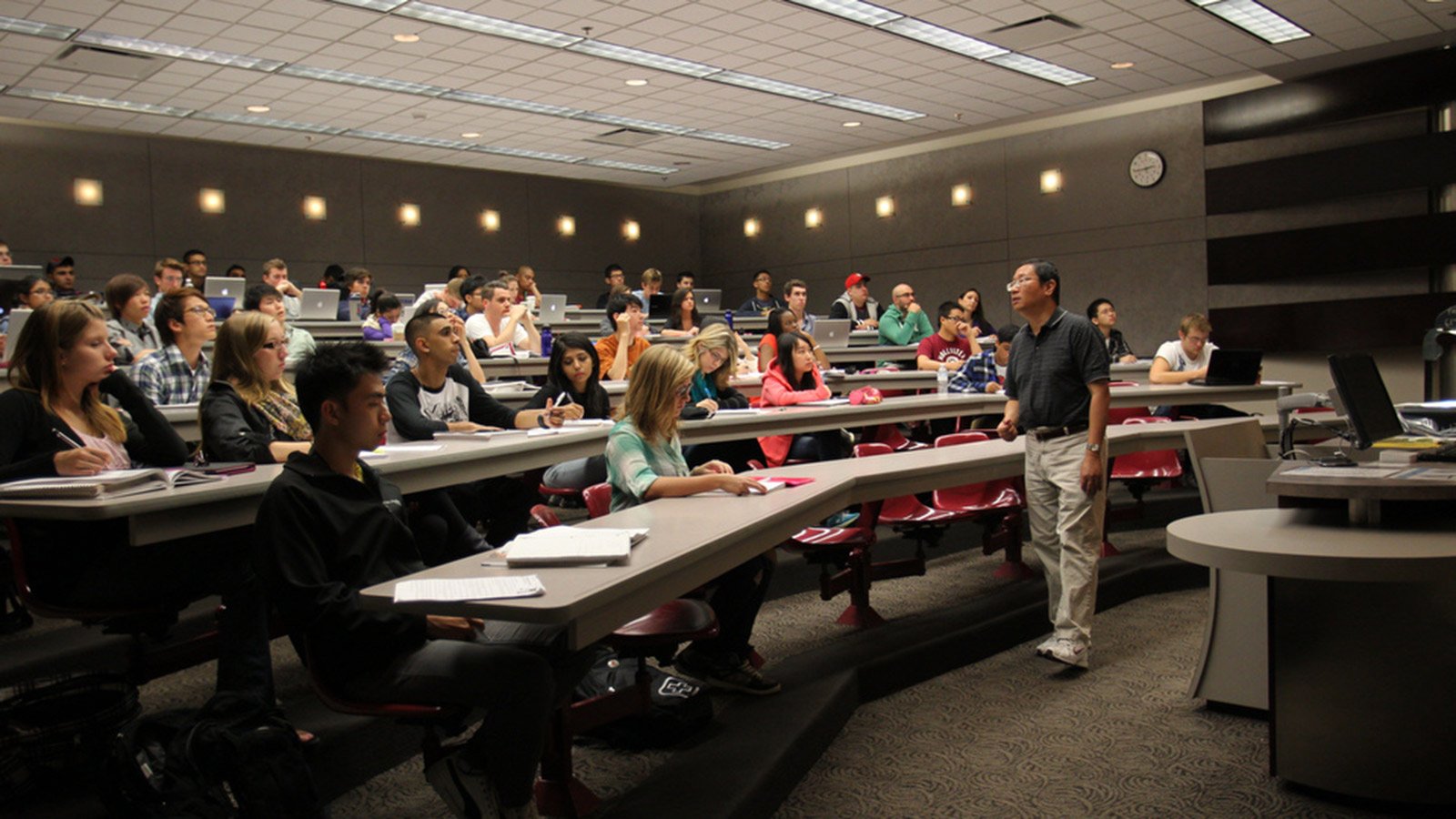Students shouldn’t get refunds for faculty strikes
Why university doesn’t come with a money-back guarantee
Prof Raymond Lee teachers his Intro to Organizational Behaviour class in the Asper School of Business at the University of Manitoba on Monday, October 1, 2012 (Photo by Marianne Helm for MACLEANS MAGAZINE)
Share
 In the wake of two faculty strikes at universities in New Brunswick, students have been making a simple demand: we want our money back. Universities, as you might imagine, are not always eager to oblige. In fact, shortly after Mount Allison University students went on record demanding that they be refunded part of their tuition to compensate for the time to lost to a faculty strike, the university announced that they weren’t repaying anyone. Administrators at the UNB were somewhat more accommodating, providing their students with rebates to compensate them for their trouble.
In the wake of two faculty strikes at universities in New Brunswick, students have been making a simple demand: we want our money back. Universities, as you might imagine, are not always eager to oblige. In fact, shortly after Mount Allison University students went on record demanding that they be refunded part of their tuition to compensate for the time to lost to a faculty strike, the university announced that they weren’t repaying anyone. Administrators at the UNB were somewhat more accommodating, providing their students with rebates to compensate them for their trouble.
These, one assumes, will not be the last university strikes in Canada, so the larger question remains: should universities always refund their students for missed time?
The case for such refunds is straightforward. After all, tuition fees are paid with the expectation of a certain number of weeks of instruction. If all those weeks are not provided, some of that money, it seems to follow, ought to be refunded. But as is so often the case, the simple case is not just simple, but simplistic. Tuition rebates are illogical and, worse, misrepresent the nature of university learning.
For one thing, universities that experience substantial strikes typically lengthen the term by cancelling reading breaks and adding additional days. So the number of classes actually lost is usually not excessive. And missing days here and there are common in any case. If the UNB repays students for instruction lost to a strike, shouldn’t they also refund students for days lost to bad weather?
Indeed, since taxpayers in most provinces pay roughly half of the cost of educating university students, shouldn’t students refund the government some of that money if they fail to show up for class?
The larger issue though is that tuition fees do not simply pay for a certain number of class hours. Tuition fees entitle a student to take courses for credit, and to a whole range of academic services in addition to instruction per se, and many of those services are still available during a strike. Students are typically allowed to come on to campus, and to use the library, computer labs, and other facilities. Moreover, though classes are not meeting, there is no reason for students to stop being students. They can still do their readings, work on assignments, and do any number of tasks assigned before the strike occurred.
Certainly a long strike can cause students anxiety and an extended term can be inconvenient. And universities should take steps to show their students that they regret the extra difficulties created. Still, university education is not a commodity to be traded. And paying tuition is not like buying cleaning products. There’s no money-back guarantee.
Todd Pettigrew is an associate professor of English at Cape Breton University.